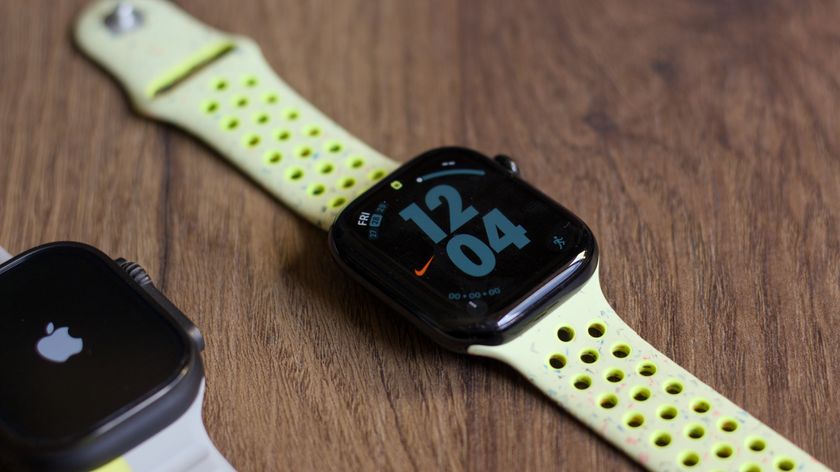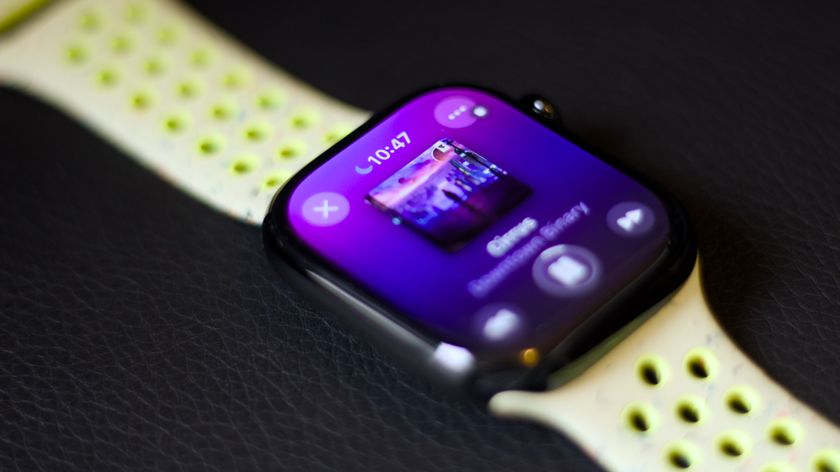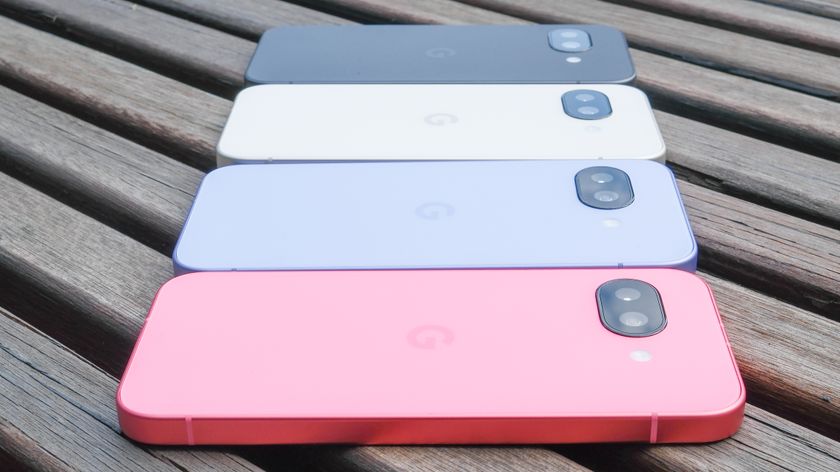Are you addicted to your iPhone and is it screwing up your life?
Gaming and mobile addiction explained by the experts
"The assumption that new technology ultimately improves the quality of daily life is not proven," argues Northampton Business School's Professor Nada Kakabadse, author of recent book Technology Overload: Explaining, Diagnosing and Dealing with Techno-Addiction. (Go here for a PDF download).
"Indeed there is increasing evidence that it destroys as many valuable customs as it supports," she adds. "Yes, new ICT enables businesses to communicate globally in seconds, but it also eats into valuable time in countless transactions with little benefit emerging."
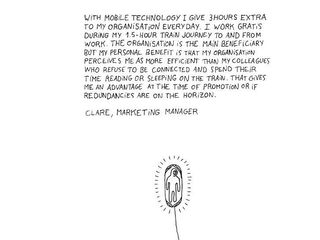
TECHNO-ADDICT: People work harder to keep their jobs (pic courtesy: Kakabadse)
In a recent study, Kakabadse interviewed 360 knowledge workers from a variety of UK and US organisations and concluded that around two thirds suffered from technology overload, while one third exhibited 'techno addiction'. She highlighted the following signs of technology addiction to watch out for:
- Over use of ICT or gadgets to the exclusion of other activities
- Prolonged concentration on ICT-related activities, often ignoring warnings from others of excessive time spent online and
- 'Connectivity disorder', involving checking for messages or sending trivial texts just to feel 'connected.'
On the flip side, many argue that technology allows us to be more productive and to multi-task better than ever before, yet Kakabadse sees dangerous "cognitive and emotional switching costs" incurred with this.
"Humans can only cope with only seven or so tasks simultaneously," she argues, "whereas electronic gadgets are limited only by their processor speed. Within such a context individuals are increasingly overloaded by a bombardment of communication."
Work-play boundary blurring
Get daily insight, inspiration and deals in your inbox
Sign up for breaking news, reviews, opinion, top tech deals, and more.
There is an increased blurring of the boundaries between using your gadgets for work, and using them for personal pleasure and play. There is also, as Kakabadse identifies in her book, "the parallel pressure to express oneself individually through technology – to make statements about status, or hold conversations which forge new friendships or sexual relationships."
The combination of persuasive marketing messages from the likes of Apple combined with peer pressure to not want to feel left out adds to the many pressures from work-based commitments - what Kakabadse refers to as "glorifying a 24/7 work and response pattern, especially via the internet, accelerated by the leadership of increasingly 'techno-savvy' executives who want greater efficiency from technology."
Or, put simply, fear of failure.
These are the pressures that lead to what is referred to as 'techno-stress' or 'Information Fatigue Syndrome' (IFS), "the extreme strain people feel when their personal space is increasingly invaded by ICT innovation. Peace and quiet is irrecoverable."
Kakabadse asks us one key question: "Where does the geekdom stop and the techno-addiction start?"
Stanford University iPhone study
Stanford University recently carried out some research into the phenomenon of iPhone addiction, in which Professor Tanya Luhrmann and her team of researchers interviewed 200 college students in a survey to find out more about their iPhone use and habits.
Somewhat worryingly, on a scale of one to five, where five is full blown addiction and one is not addicted at all, ten per cent of the respondents ranked themselves as a five, while 32 per cent who said they weren't completely addicted were worried that they soon may be.
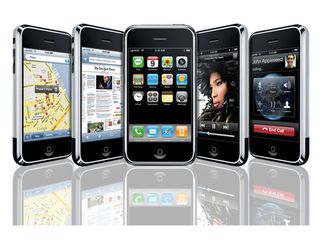
ADDICTIVE BEHAVIOURS: 1 in 10 said they considered themselves addicts
Other telling figures from that survey show that 85 per cent use the iPhone as their watch, 89 per cent use it as an alarm clock, 75 per cent fall asleep with the phone next to them and 69 per cent were more likely to leave their wallet behind. 41 per cent said that losing their iPhone would be tragic and 30 per cent said it was a "doorway into the world."
Most intriguingly is the way in which the students talk of the affections they have for their iPhone, talking about the device as if is an extension of their own bodies. 9 per cent have patted the iPhone; 3 per cent don't let anybody touch their iPhone; 3 per cent have named their iPhone; 8 per cent thought their iPod was jealous of their iPhone. And so on.
Not an unhealthy addiction
What is slightly encouraging is the fact that Professor Luhrmann doesn't think that it is necessarily an unhealthy addiction, more the fact that the students just like their iPhones a lot (74 per cent of respondents thought said it made them feel 'cool').
Following the recent research, Luhrmann also told TechRadar that while "internet addiction is a new category in the American psychiatric nosology (DSM5) and that while people use technology in ways that are detrimental, she did not interview people in ways that would make that clear, and there is always a complex line between health and illness.
"Do people use iPhones and email in ways that are detrimental to face to face relationships? Sure, and our data support that. Does email lead to depression or psychosis? That seems unlikely. Does email make us unhappy? For sure, and we are just at the beginning of understanding this complex relationship and the way that technology changes our moods and minds."
Current page: Does new technology improve your life?
Prev Page Life as an app-oholic Next Page Addiction clinics open in the UK




